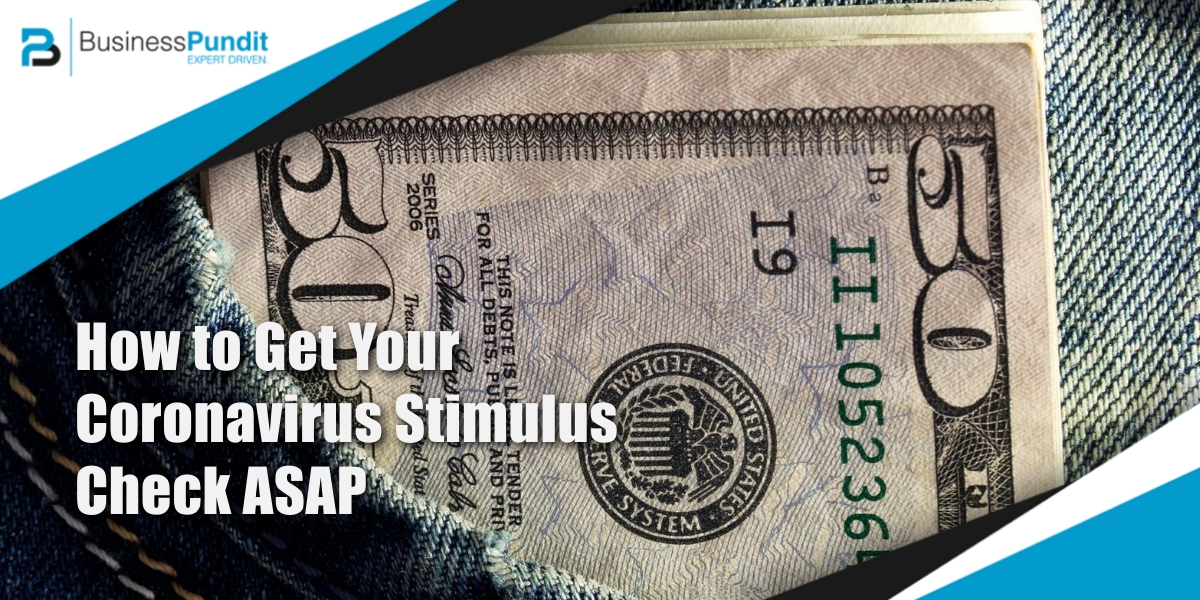
Soon some Americans will begin to receive checks as part of the $2 trillion CARES Act coronavirus stimulus for economic recovery. If you are expecting a COVID-19 stimulus check, there are some steps you can take to make sure your coronavirus stimulus money gets to you as soon a possible, rather than months from now.
It’s estimated that if all goes smoothly, the coronavirus stimulus money will begin to arrive (for those who qualify) around April 13th. However, for some, the stimulus checks may be delayed. Here are some things you can do to ensure you will receive the COVID-19 relief you are entitled to receive in a timely manner.
Direct Deposit Payments Go Out First
The first people to receive coronavirus stimulus money will be American taxpayers who are already set up with the IRS for direct deposit. These people will start receiving coronavirus stimulus payments on April 13.
“If we have your information you’ll get it within two weeks,” Treasury Secretary Steven Mnuchin
The direct deposit coronavirus payments will go out to the lower-income taxpayers first. However there is less of a bottleneck in processing digital direct deposit payments than with paper checks, so these payments should get to Americans faster.
Taxpayers who have already filed a tax return for 2019 and received a tax refund via direct deposit will be the first to receive COVID-19 relief payments.
You should receive a notice in the mail within 15 days of your coronavirus stimulus direct deposit.
Lower Income Individuals Will Receive Stimulus Checks First
If you are waiting for your COVID-19 stimulus check to come in the mail, unfortunately, you could be waiting for a while.
If the IRS does not have your direct deposit information on file, checks will start going in the mail on May 4th. The Treasury Department cannot process all the checks at one time, so they will go out in waves. Check payments will go out to the lowest income people first.
If you have filed your 2019 federal tax return and are expecting a tax refund check in the mail you will also receive your coronavirus stimulus check in the mail. These payments will be the most delayed, as the US Treasury can only process roughly 5 million checks per week.
This means that it could take 20 weeks (5 months!) to process all of the relief checks and get them in the mail.
How to Get Your COVID-19 Stimulus Payment Faster
If you have not yet filed your 2019 tax return, and especially if you are due a refund, you should file your return as soon as possible and use the direct deposit option so that the IRS will have your direct deposit information on file to also deposit your stimulus check.
The IRS also plans to open a web portal for taxpayers to log in and enter their account information for direct deposit payments. But the government isn’t great at putting websites together (looking at you, healthcare.gov) so the earliest this option could be available is in late April or early May — and that’s iffy.
What If I Don’t File Tax Returns?
If you are retired or disabled and receive Social Security benefits you may not be required to file tax returns. For these people, the coronavirus relief payments will be automatically deposited or a check will be mailed, depending on how the individual typically receives payments. These people won’t be required to file a simple tax return to receive the stimulus money.
Low-income taxpayers, such as veterans or disabled people who may not usually be required to file a tax return will be required to file a simple form in order to trigger their coronavirus stimulus payment. More information on this is coming from the IRS soonly, they say.
The bad news is that these payments are not likely to arrive quickly.
The IRS has a page you can check for updates on your coronavirus stimulus check. They do not recommend you call for information.
The IRS is in the same situation as the rest of the world and is operating with limited staff, and many are working remotely. Aside from call hold times being approximately 52 years, you are not likely to get any information that you could not get by visiting this page for coronavirus stimulus information.